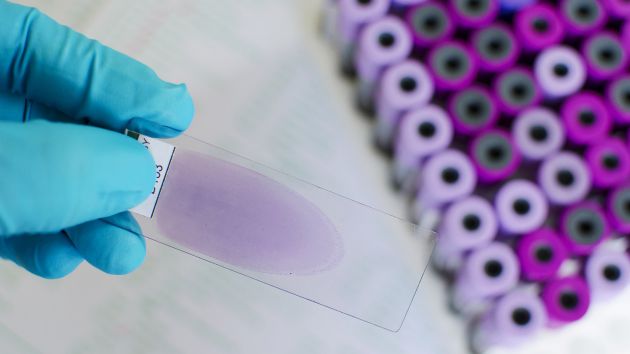College/Division
College of Public Health, Medical and Veterinary Sciences
Publish Date
16 April 2020
Related Study Areas
Personal stakes in the fight against malaria
Edgar Pollard, JCU PhD candidate, nearly died from malaria before deciding to study how it’s transmitted. Since undertaking his research, both of his children have become ill with, and recovered from, the disease that kills more than 400,000 people annually, most of them children.
Edgar’s research is focused on how vector control methods have affected the mosquitoes that carry malaria. He’s hoping to submit his PhD in the next three months, and has found some interesting results along the way. The key finding is that mosquito control methods, such as Indoor Residual Spraying (IRS) and mosquito nets, have caused the disease-carrying insect to change its habits.
“In the Solomon Islands, what we’ve come to know is that the times that transmission is happening, these peak mosquito biting times, is early evening, about 7 to 8pm,” Edgar said. “This is happening in outdoor areas around the home. Areas such as the veranda and outdoor kitchen areas where people are mostly active, this is where we’re finding the mosquitoes, as well.”
With this information in tow, Edgar has a few ideas about how people might be better protected from malaria-carrying mosquitoes. He hopes to implement these measures when he heads back to the Solomon Islands.
“We have some ideas on what we could trial with some existing methods and some new methods out there that are being tested in Africa,” he said.
“When I get home I’d like to work in some of the hotspots around the Solomon Islands and maybe look at residual spraying around veranda and kitchen areas,” he said.
“One of the existing methods is called IRS, indoor residual spraying, which is currently focused on the inside of the house. With the information that we have, we’re thinking that it is worth applying to these outdoor areas.”
This has its own challenges, with the sprays used being susceptible to sunlight, as well as wet weather common in the tropics.
“Sunlight breaks the spray down,” Edgar said. “We have to look at that and the biggest concern is that with verandas they’re sort of half indoors and half outdoors, there could be some areas that might be better suited than others.”


Detection of the infection
One of the major breakthroughs in the fight against mosquito-borne disease is the use of the Wolbachia bacteria to counter dengue fever.
The process, which involves infecting mosquitoes with the bacteria to stop them transmitting disease, was created with the help of JCU Researchers.
Unfortunately, this method can’t be applied to the parasitic malaria, a completely different health issue to the viral dengue, albeit one with the same itchy and annoying mode of transmission.
There has been one breakthrough in the treatment of malaria, namely doctors’ ability to detect it.
“In the Solomon Islands over the past couple of years there is a new Rapid Diagnostic Test (RDT) that is being used, which has been proven to detect malaria more consistently. It has a higher detection rate, it’s able to detect low level infection,” Edgar said.
“It’s really important because the quicker we can identify who has malaria, the quicker they can go and get treatment. This reduces the burden on communities. Having technology that is able to identify malaria quickly is really vital.”
Edgar Pollard, JCU PhD candidate
The continued prevalence of malaria in tropical areas, especially in his home country the Solomon Islands and sub-Saharan Africa, has given the PhD candidate no cause to let up.



“It is personal, I guess. Our country is aiming for malaria to be eliminated by 2030, which is definitely going to be an up-hill battle to achieve,” he said.
“My personal goal is that if I can have a country where my grandchildren don’t have to get malaria that would be really good.”
One of the greatest risks to this goal is funding, with the volume of research usually being proportionate to the prevalence of the disease.
“In the global fight against malaria we’ve just got to be careful not to get complacent. Sometimes when you feel the numbers have gone down you put it on the backburner or reduce the amount of resources that we put towards this fight. As has been documented in a few cases around the world when you do that malaria does come back with a vengeance.”